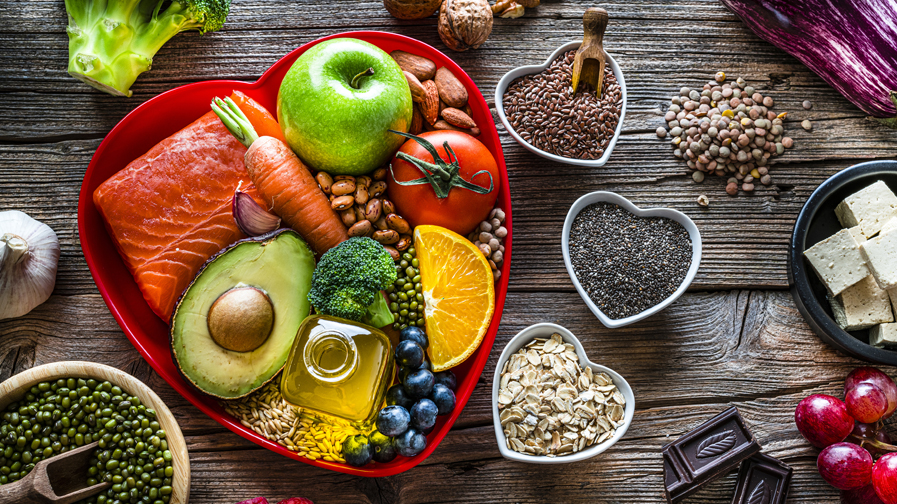Blog
The way to a healthier heart is through your stomach
Help for heart-healthy eating is right here at Howard Memorial Hospital

There are many factors that help with heart health. Getting daily physical activity improves blood flow and helps lower the risk of cardiovascular disease, stroke and diabetes. Regular wellness visits and screenings help providers detect issues early or prescribe medications to mitigate conditions—like elevated blood pressure or cholesterol levels—that help prevent cardiac events. And one thing that’s absolutely critical to heart health is much simpler: choosing nutritious foods that fit your lifestyle—and help you live a happier, heart-healthier life.
Healthy eating helps keep strong hearts beating
Of course, making any lifestyle change can be difficult, but for many, modifying their eating habits is particularly challenging. Unlike some things (unhealthy habits like smoking for instance), you can’t quit—or avoid—food. We all need to eat to live which means there are choices to make every day—multiple times—throughout all of life. So where do you start to select more heart healthy foods? Consider these reminders as you plan meals and menus:
- Choose whole grains. Whole grains are good sources of dietary fiber which helps improve blood cholesterol levels and lowers your risk of heart disease, stroke, obesity and type 2 diabetes. The American Heart Association recommends choosing whole grains and products that contain at least 51% whole grain versus refined grains so check those nutrition labels. Common whole grain foods include oatmeal (rolled or steel cut), brown rice, wild rice, popcorn, quinoa, graham flour and barley.
- Proteins help you feel fuller longer—choose them wisely. Lean meats, chicken and fish are healthy protein selections because they’re lower in saturated fats—which raise cholesterol and increase the risk of heart disease or stroke. Legumes—beans, peas and lentils—are a great protein source without the fat and are also rich in fiber. Nuts and unsweetened nut butters are also heart-healthy proteins that keep you feeling full and satisfied.
- Trans fats are the worst fats. Trans fats are created when hydrogen is added to make vegetable oils solid. In this form, they have a longer shelf life and are convenient for restaurants and food manufacturers to use—but they are so bad for your health that the Food and Drug Administration (FDA) is actually forcing companies to phase them out. Foods likely to contain trans fats include baked goods, some microwave popcorns and frozen pizzas, fried foods, coffee creamers and stick margarine. Trans fats increase the risk of heart attacks, coronary artery disease and can elevate unhealthy cholesterol levels. While trans fats are found naturally in some meat and dairy sources, the artificial types make up most of what is in the nation’s food supply. Skip trans fats completely if/when you can.
- Limit saturated fats. Saturated fats are derived from animals. These fats, which are generally in a solid form, raise bad cholesterol and can contribute to heart disease. Common sources are high-fat meats, high-fat cheeses, palm oil, coconut oil and whole-fat dairy products. The American Heart Association recommends limiting saturated fats to 13 grams or less per day.
Nutrition services at HMH art healthy eating at HMH
At Howard Memorial Hospital, registered dietician and nutritionist Denise Graves personalizes plans to help individuals incorporate healthy eating habits and find foods that are delicious, nutritious and work for their unique lifestyles. From educating about the basics of reading food labels to partnering with people who want more extensive guidance, Denise is passionate about helping people meet their health goals and working with them to find foods that they—and their hearts—will love.
If you have questions about nutrition services at HMH, call Denise Graves, RDN, at 870-845-6935 or email at deniseg@howardmemorial.com.
To learn more, visit our Nutrition Services page.
